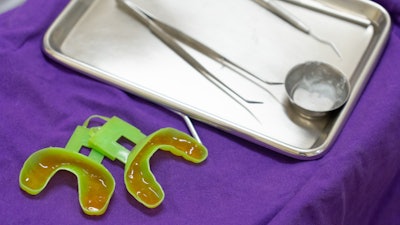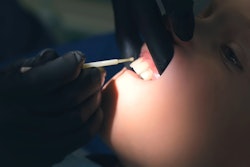
Topical fluoride may effectively reduce radiation caries in patients undergoing head and neck radiotherapy, according to a systematic review and meta-analysis recently published in the Journal of Evidence-Based Dental Practice.
Clinicians should consider including it in their oral care plans, tailored to each patient's needs, the authors wrote.
"The findings support the use of topical fluorides as a preventive measure for radiation caries in patients undergoing head and neck radiotherapy," wrote the authors, led by Deepali Agarwal (J Evid Based Dent Pract, November 1, 2024, 102050).
The review analyzed 14 studies from 346 abstracts on the effectiveness of topical fluoride in preventing radiation caries in patients undergoing head and neck radiotherapy. The studies, sourced from PubMed, Google Scholar, and Cochrane, included randomized controlled trials, quasi-randomized trials, and uncontrolled trials, they wrote.
Various fluoride formulations were assessed, including sodium fluoride (0.05% to 5%), stannous fluoride (0.4%), and acidulated phosphate fluoride (1.23%), and applied as solutions, gels, toothpaste, varnishes, or powders. Comparisons were made against no fluoride use and alternative treatments like 10% casein phosphopeptide-amorphous, 2% sodium iodide, and 0.12% chlorhexidine.
There was strong evidence that topical fluorides reduced radiation caries by up to 70%, especially with regular patient compliance and follow-up, they wrote.
Sodium fluoride was the most used and effective agent, with little difference found between sodium fluoride and other fluoride formulations. However, adding remineralizing agents did not show a significant advantage, suggesting that fluoride alone is sufficient for caries prevention, they wrote.
Nevertheless, the review study had limitations. Variations in patient compliance and follow-up duration across studies make it challenging to draw definitive conclusions, the authors noted.
"Clinicians should consider these findings in their practice and stay updated on emerging research to provide the best care for their patients," they concluded.



















